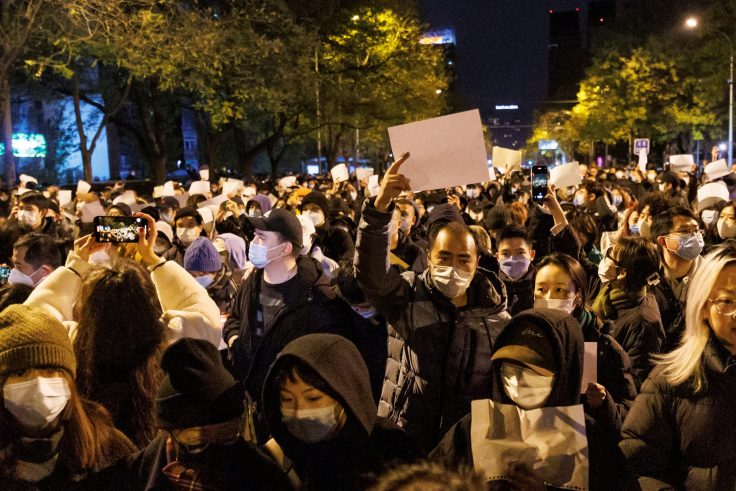By Brenda Goh and Martin Quin Pollard
SHANGHAI/BEIJING (Reuters)—The giant Chinese cities of Guangzhou and Chongqing announced an easing of COVID curbs on Wednesday, a day after demonstrators in southern Guangzhou clashed with police amid a string of protests against the world’s toughest coronavirus restrictions.
The demonstrations, which spread over the weekend to Shanghai, Beijing and elsewhere, have become a show of public defiance unprecedented since President Xi Jinping came to power in 2012.
The southwestern city of Chongqing will allow close contacts of people with COVID-19, who fulfil certain conditions, to quarantine at home, a city official said.
Guangzhou, near Hong Kong, also announced an easing of curbs, but with record numbers of cases nationwide, there seems little prospect of a major U-turn in “zero-COVID” policy that Xi has said is saving lives and has proclaimed as one of his political achievements.
Some protesters and foreign security experts believe Wednesday’s death of former President Jiang Zemin, who led the country for a decade of rapid economic growth after the Tiananmen crackdown in 1989, might become a new rallying point for protest after three years of pandemic.
Shanghai medical company worker Ray Lei, in his 20s, said Jiang was sometimes compared positively to Xi, given his skills on the international stage and relative openness to the West.
“So as for Jiang Zemin’s death, we feel a sense of tragedy towards the future of China’s…


























































